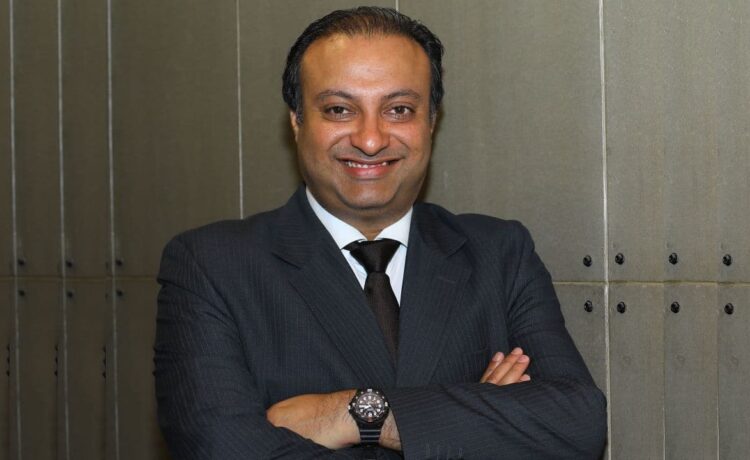Story continues below Advertisement
Abhishek Banerjee, smallcase Manager & CEO, and Founder of Lotusdew Wealth is very bullish on the premiumisation theme.
“As per capita increases it has a flywheel effect on premiumisation. We are in a decade where brands that offer exclusive promise of quality will see growth,” he says in an interview with Moneycontrol.
Story continues below Advertisement
The chartered alternative investment analyst, who has more than a decade of experience in asset allocation, portfolio construction, and quantitative investments, believes markets care more about policy continuity than political continuity.
“I do think markets are not pricing in any black sawn in election – which could be results at the extremes. A moderate election outcome is what seems to be the consensus,” he says.
Most experts are talking about premiumisation theme that can play for the coming years. Are you bullish on the same?
Story continues below Advertisement
Yes, very much. As per capita increases it has a flywheel effect on premiumisation. We are in a decade where brands that offer exclusive promise of quality will see growth. We will see it in all forms of manufacturing – from building materials, transportation, textiles, consumer durables, FMCG and including financial services both in banking and asset management.
We think high-touch brands will succeed as much as digital platforms. There is plenty of room for growth for both. An example is the acceleration of broadband and telecom services. We think this is a decade of upgrades.
We are primarily looking at plays that allow differentiation, exclusivity and can humanize products and services. While digital brands expand the market, there is an equal opportunity in exclusivity. An example within financial services is a concierge layer that credit cards are using to attract premium customers.
Story continues below Advertisement
Do you think telecom is the best space to have it in portfolio for the next couple of years?
The ARPU (average revenue per user) of telecom needs to increase and this can happen only if the regulator TRAI enables such business models as differential access. There has to be more value-added services available on demand for premium customers.
Within the telecom space, privacy, security, and exclusivity are trends to watch in our opinion. A hypothetical example could be private numbers that don’t show up in caller ids.
In addition to above question, do you think the third player in the telecom space, especially after recent fund raising, can be able to survive and become profitable in coming years?
More players is always good for customers. Somehow in India we have always delivered duopolies in the market. Previously conglomerates were able to outcompete as they could raise capital and access markets faster than newcomers. But that has changed now. Profit pools are more distributed – but competition is intense in India which often leads to consolidation.
While it’s important to control the growth, we must allow for new kinds of business models and services to emerge from the immense reach telecom providers enjoy.
Should one ride on the capex theme considering the government’s increasing focus on infrastructure spending?
Government now controls of 40 percent of GDP with their spending plans so government capex has become more important. Also, as much of it is used in public goods and services, earnings from the consumption pattern of this spending will be the key for companies.
We are very excited about companies that will serve the people and industries that benefit from increased government capex which includes travel and tourism, packaged food, transport to name a few.
Is the data convincing you that more than 50 bps fed funds rate cut is possible in second half of 2024?
We are seeing something really worrying. US GDP is below expectation and inflation is above expectation. If unemployment in US rises, Fed will be caught in a very difficult place as they cannot lower rates. One of the vectors which is employment softening will start to kick in and this coupled with higher inflation will make it very difficult for Fed to forward guide.
However, since credit crisis of 2008, we have always been keenly following rates as a key measure for pricing PE. The breakout will come from new capex delivering new earnings which is more powerful than lower cost of capital due to reduced rates.
Though it is a short-term view, do you think the market already priced in the expected continuation of current government post-Lok Sabha elections?
Markets care more about policy continuity than political continuity. I do think markets are not pricing in any black sawn in election – which could be results at the extremes. A moderate election outcome is what seems to be the consensus. However, we are exposed to issues like monsoon underperformance, any geopolitical tensions spilling into oil or us having to choose sides in a global conflict.
These can have pretty serious positive as well as negative consequences which we are not thinking a lot about. That said, I cannot think of a market wider, deeper, and more diverse than India, especially Indian equity and we should make maximum use of it as domestic investors get preferential tax treatments and access compared to other investors in some cases.
Disclaimer: The views and investment tips expressed by investment experts on Moneycontrol.com are their own and not those of the website or its management. Moneycontrol.com advises users to check with certified experts before taking any investment decisions.
Discover the latest business news, Sensex, and Nifty updates. Obtain Personal Finance insights, tax queries, and expert opinions on Moneycontrol or download the Moneycontrol App to stay updated!
















